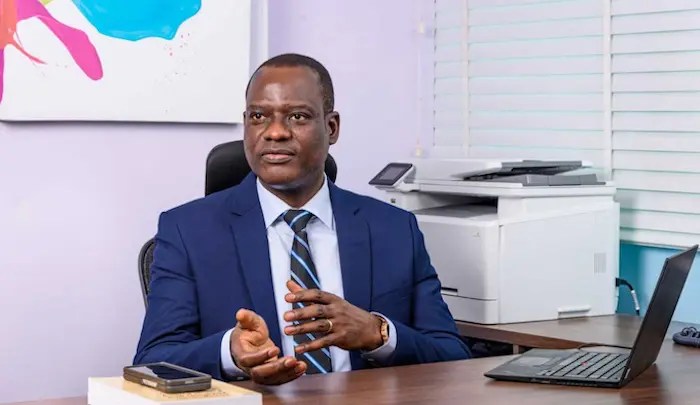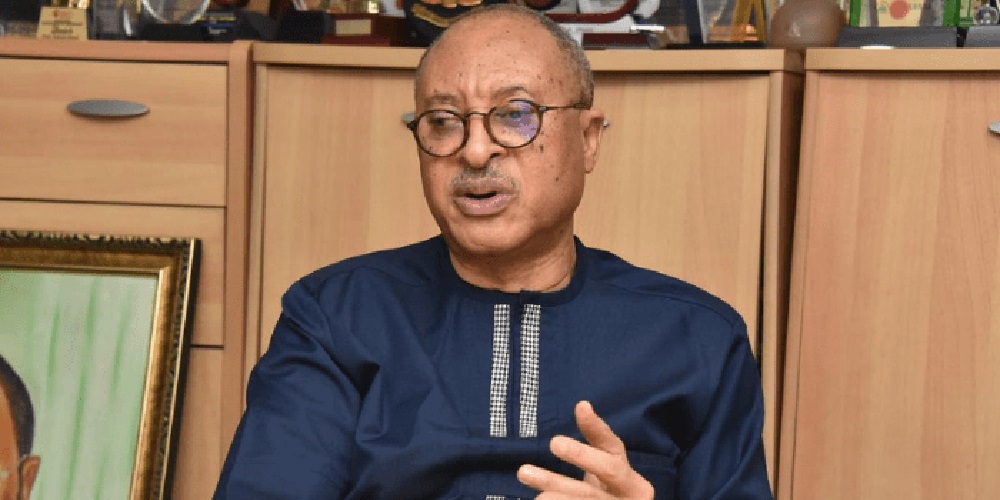News
Nigerian celebrities to pay 25 percent tax – Oyedele

The Chairman of the Presidential Fiscal Policy and Tax Reforms Committee, Taiwo Oyedele, has said that wealthy Nigerians earning N100m and above monthly will face a 25 per cent personal income tax rate if a new tax bill is passed by the National Assembly.
He stated that 90 per cent of the current taxpayers are people who should not be taxed while advocating for a more streamlined and equitable tax system in the country.
This revelation was made during a breakout session at the ongoing 30th Nigeria Economic Summit organised by the Nigerian Economic Summit Group and the Ministry of Budget and National Planning on Monday in Abuja.
Oyedele emphasised the need to strike a balance between easing the tax burden for lower-income earners and ensuring the wealthy contribute more to government revenue.
“If you earn N100m a month, we are taking up to 25 per cent from the rich people. That’s because we need to balance the books,” Oyedele stated.
The fiscal policy expert said the government is prepared and determined to ensure that the right individuals pay taxes, noting that his committee is actively working to achieve the goal.
He added that the proposed changes are expected to take effect from January 2025, based on the passage of the bill by lawmakers.
For middle-income earners making N1.5m or less per month, Oyedele disclosed that their personal income tax obligations would decrease while those earning higher amounts would see incremental increases in their tax rates, eventually reaching 25 percent. Lower-income earners would be fully exempt from personal income tax.
The reforms also aim to ease the tax burden on businesses.
Oyedele noted: “Today, whatever VAT you (businesses) pay on assets—whether you’re building a factory, buying a laptop, or vehicles—you bear it. This increases your cost, and therefore, your pricing will go up. Once our reforms are implemented, you get the credit back 100 percent on services and assets.”
“People will pay tax once we decide that they have to pay. What we realize is that almost 90 per cent of people who are paying taxes are those who should not have been paying in the first place,” he said.
“So that’s where we came up with the data that 97 per cent of the informal sector should be formally exempted from taxes. People do not understand where we are coming from. They’re not the ones to pay taxes. They’re just trying to survive.”
Regarding how his committee is working to ensure the right individuals pay taxes, Oyedele said the team would utilise primary data identification channels to accurately bring the appropriate group of taxpayers into the tax bracket.
Additionally, the corporate income tax rate is set to drop from 30 per cent to 25 per cent which Oyedele described as “huge” for businesses. Other significant tax adjustments include a reduction or elimination of VAT on essential goods and services such as food, health, education, accommodation, and transportation.
These essential services make up a large portion of household expenditure for the lower-income population, and the proposed reforms aim to lessen their financial burden.
However, Oyedele acknowledged that not all sectors would benefit from reduced tax rates. For other goods and services, the VAT rate would increase to ensure the government’s revenue book balance.
He also pointed out that inflation had already acted as a “disorderly” tax on the population, eroding the value of their money without the need for legislation.
In addressing concerns over tax incentives and waivers, Oyedele argued that indiscriminate incentives harm the economy and that removing unnecessary incentives could relieve the business sector without costing the government revenue.
“We cannot give all the incentives you are asking for. We think the biggest low-hanging fruit is removing these incentives, and that’s exactly what we are doing,” Oyedele concluded.
News
500 lawyers set to defend Utomi against DSS

A professor of Political Economy, Pat Utomi, on Friday said he is receiving support from some Nigerians who are planning to mobilise 500 lawyers to defend him against the Department of State Services.
Utomi revealed this in a post on X.
“It’s energising (that) some want to put together 500 lawyers to defend me against the DSS,” he said.
The DSS had sued Utomi over his alleged plan to establish what he calls “a shadow government” in the country.
According to the suit filed at the Federal High Court in Abuja, the DSS prayed the court to declare the move an attack on the Constitution.
The professor of Political Economy, who is the 2007 presidential candidate of the African Democratic Congress (ADC), was sued as the sole defendant.
In the suit filed on May 13 by a Senior Advocate of Nigeria, Akinlolu Kehinde, the agency contended that the move by Utomi was intended to create chaos and destabilise the country.
The DSS had argued that the planned shadow government was not only an aberration but also constituted a grave attack on the Constitution and a threat to the democratically elected government currently in place.
However, Utomi said he was gladened by the solidarity he had received from across the country.
“I am heartened by messages of solidarity from across Nigeria on this shadowy business of chasing shadows of shadow cabinets. Reminds me of the Nigeria I used to know. I want to thank all.”
The planned shadow cabinet was greeted by reactions from several Nigerians, including a former presidential candidate and activist, Omoyele Sowore, who said it was an ineffective symbolic gesture that lacked real-world impact on Nigeria’s pressing challenges.
Speaking during an interview on Inside Sources on Channels TV on Sunday, Sowore argued that the idea of a shadow cabinet was futile in a country where the existing government is itself opaque and largely unaccountable.
He said, “Well, how do you replace a shadow government with another set of shadowy governments? I would not begrudge anybody who thinks of solutions that can bring awareness to the people.
“But I do not think that setting up a government with names of people who call themselves a shadow government makes any difference.”
News
Police Speaks on Viral Video of Young Men Arriving in Ibeju-Lekki

The Lagos State Police Command has issued an official statement addressing a viral video that sparked concern on social media, showing a large group of young men reportedly arriving in Lagos and gathering near the Dano Company premises in Ibeju-Lekki.
According to the Command, the incident occurred on May 14, 2025, prompting swift deployment of officers to the scene for investigation. The police confirmed that the individuals—eighty-nine in total—had arrived from Katsina State to work as labourers at the Dangote Refinery in Lekki.
A contractor affiliated with the refinery informed the police that he personally recruited the workers for legitimate employment, a statement corroborated by the refinery’s Chief Security Officer (CSO). All individuals were cleared for entry and are expected to reside within the refinery premises.
The police confirmed that thorough checks were conducted, revealing no incriminating materials. The labourers also presented valid National Identification Numbers (NINs), which were successfully verified by the authorities.
Commissioner of Police, CP Olohundare Jimoh, urged the public to refrain from spreading unverified information that could incite panic or tension. He assured residents of the Command’s continued commitment to public safety and swift response to potential threats.
Police Public Relations Officer, CSP Benjamin Hundeyin, signed off on the statement, reaffirming the Command’s dedication to transparency and law enforcement in Lagos State.
News
Finland charges Simon Ekpa with inciting terrorism

Finnish prosecutors on Friday said they had charged a man with inciting terrorism online who a media report identified as Nigerian separatist leader Simon Ekpa.
Finland’s National Prosecution Authority said in a statement that it had charged “a Finnish individual in a case involving suspected public incitement to commit crimes with terrorist intent and participation in the activities of a terrorist group.”
It added that the alleged crimes had been committed in the city of Lahti between 2021 and 2024 and were related to the suspect’s efforts to establish Nigeria’s Biafra region as an independent state.
The prosecution authority did not name the accused but Finnish public broadcaster YLE identified him as separatist leader Simon Ekpa.
Ekpa — who claims to lead the Biafra Republic’s government in exile — was detained in November.
According to the prosecution authority, the accused remained in custody and denied the charges.
Ekpa is known as a self-proclaimed leader of a faction of the Indigenous People of Biafra (IPOB), which is pushing for the independence of Nigeria’s southeast, where a bloody civil war was fought in the late 1960s.
The dual Finnish-Nigerian national has also been a local representative for Finland’s conservative National Coalition Party in the city of Lahti, north of Helsinki, where he has served on a public transport committee.
When Ekpa was arrested, Finnish authorities also requested that four other people be remanded in custody on suspicion of financing Ekpa’s activities.
On Friday, the prosecution authority said the prosecutor had decided to drop charges against four others in the case due to a lack of evidence.
Ekpa has been the subject of several of AFP’s fact checks in recent years over false claims and disinformation he has made in independence campaigning.
AFP
-

 News11 hours ago
News11 hours agoINSECURITY! Ten killed in Plateau over attack linked to cattle rustling, farm destruction
-

 Economy14 hours ago
Economy14 hours agoSEE Current Black Market Dollar (USD) To Naira (NGN) Exchange Rate
-

 Health19 hours ago
Health19 hours agoLassa fever claims 138 lives in 2025, cases spread to 18 states – NCDC
-

 News19 hours ago
News19 hours agoNkechi Blessing Confirms Break Up With Lover
-

 News5 hours ago
News5 hours agoPolice Speaks on Viral Video of Young Men Arriving in Ibeju-Lekki
-

 News18 hours ago
News18 hours agoCourt nullifies Edo LG chair, deputy’s impeachment
-

 Entertainment14 hours ago
Entertainment14 hours agoChris Brown Reportedly Nabbed in Manchester
-

 News7 hours ago
News7 hours agoFCTA unveils FCT Lottery Regulatory Office



